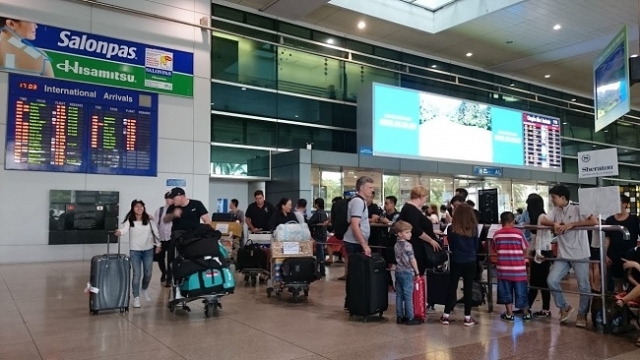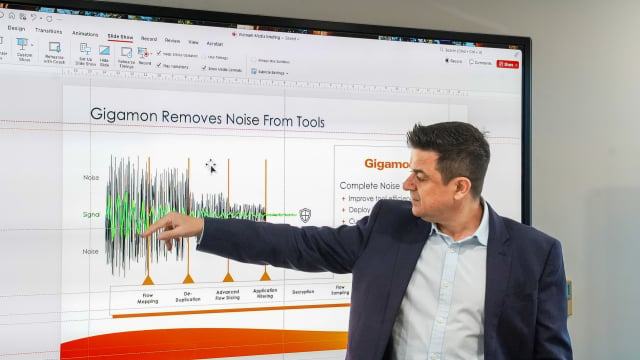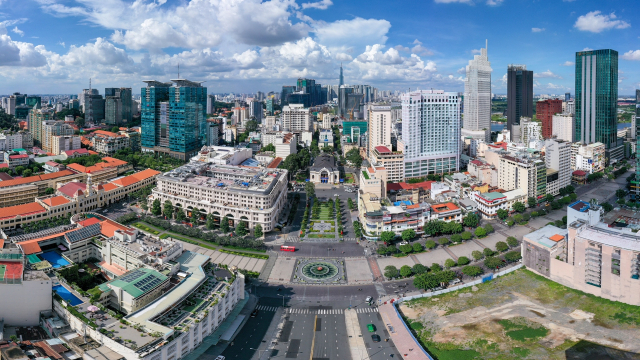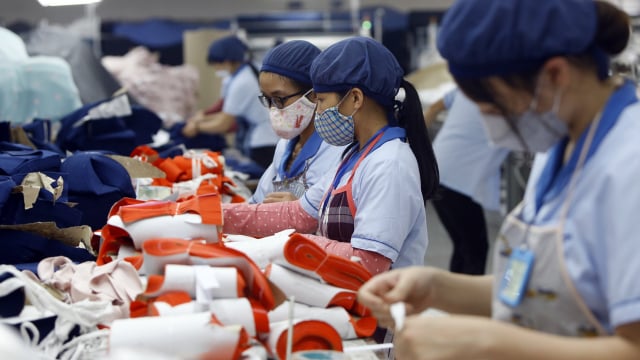Leader Talk
Surge of local players fence off foreign investors in hospitality sector
Indochina Capital Chief Operating Officer Michael Piro talks about emerging destinations for hospitality investment in Vietnam.
Why has Vietnam seen few foreign-invested projects licensed in hospitality sector in recent years despite a rapid increase in foreign arrivals?
Michael Piro: Vietnam continues to attract FDI, according to the Foreign Investment Agency, in the first five months of 2019, Vietnam recorded $16.74 billion in FDI
Around 1.363 new projects were licensed with a total registered capital of $6.46 billion in January-May, up 38.7 per cent year on year
Out of 19 sectors receiving capital, real estate is still the second most attractive sector for foreign investors.
For the first 10 months of 2019, the Vietnam National Administration of Tourism also recorded over 14 million arrivals in Vietnam.
All these figures show potential in Vietnam’s hospitality sector.
The slow increase in foreign-invested projects licensed in hospitality can be explained by the surge of local players in this segment.
This is in no way a bad sign, as Vietnam still has a lot of potential to grow, and room for both national and international players to cooperate through partnerships on a project-per-project basis or a long-term joint venture.
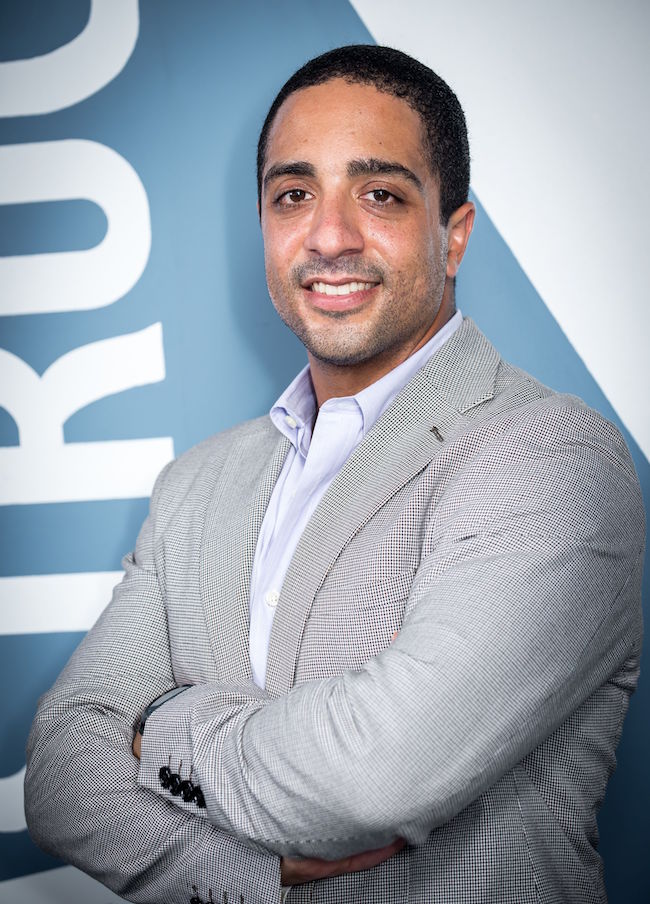
Are there any opportunities for Vietnam to attract foreign investment into tourism sector in the coming years?
Michael Piro: Hospitality in Vietnam has seen consistent growth, with potential for further grow supported by infrastructure development plans, boom of low-cost airlines (such as VietJet) helping to boost mobility.
I participated as a panelist in the 30th Hotel Investment Conference Asia Pacific (HICAP) and the enthusiasm around Vietnam was significant – foreign players are seeing Vietnam as one of the most exciting real estate market in Southeast Asia.
To increase foreign investment into tourism, we would encourage local developers to study new products and trends in the market and seek experienced consultants to fully understand new concepts and how to implement and operate these products in Vietnam.
As a developer ourselves, Indochina Capital understands the practicality concerns of a local developer while having global breadth, capability to bring international best practice and connection to global partners.
We have a very positive outlook on the growth of tourism and hospitality real estate in Vietnam in the coming years, and are certain that more Vietnamese destinations will be highlighted in the international tourism map.
Are foreign investors interested in building or acquiring condotel projects in Vietnam?
Michael Piro: Many condotel projects with large inventories have been introduced to the Vietnamese market.
This is however still a relatively new real estate product in Vietnam – the terms condotel or officetel is yet included in the local legislation and there is yet a provision to regulate this type of hybrid real estate investment.
In the US or in North America, these products became very popular, appearing in appealing destinations such as Miami Beach, Las Vegas, the Caribbean.
There is interest from foreign investors in the condotel product, however, until the legislation framework is clearly set up, it would be hard for foreign investors to build or acquire condotel projects in Vietnam.
Nonetheless, many reputable foreign investors continue to have success in other segments of the real estate industry, suggesting that they have not found it absolutely necessary to invest in condotels.
Phu Quoc has been long time touted as a tourism paradise in Vietnam, but so far only local developers are building hotels and resorts. Why are foreign investors still ignoring Phu Quoc?
Michael Piro: Phu Quoc is set to become a special economic zone and is deploying solutions to create favorable conditions supporting investors and companies while developing its infrastructure.
Up to July 2019, there are 31 FDI projects with total registered capital of $293 million - foreign investors are very aware of Phu Quoc and its potential.
As a matter of fact, many of them have invested in local developers such as Novaland, Son Kim Land and many formed joint ventures with local companies.
These joint ventures and local developers with foreign investments are investing or seeking to invest in Phu Quoc, not only in hospitality but also in commercial real estate, and the Government’s commitment in socio-economic development of the island is also boosting its potential forward for foreign investments.
However, in my opinion, all developers must look further into sustainable development strategies in Phu Quoc as we now find some beaches that have lost its natural beauty.
This could be a reason why foreign investors seem not keen to enter Phu Quoc on their own, before further sustainable construction solutions and strategies are implemented, to not contribute to this environmental issue.
Do you think that Ninh Thuan province where big condotel projects are under construction would be able to become a tourist destination? What challenges will hotel and condotel developers and operators in Ninh Thuan face?
Michael Piro: Other than its coastline, Ninh Thuan is known for its Champa monuments, traditional craft villages and in 2018, the province welcomed 2.19 million arrivals, up 15.2 per cent year-on-year.
They have created a 2030 masterplan for socio-economic development with tourism, real estate and clean energy as key development areas. The province is currently home to 61 tourism projects with a total registered capital of nearly VND20 trillion.
The province has a lot of potential to become a tourist destination but there are elements slowing down international players from entering Ninh Thuan.
For example, for hotel operators, the low inventories of 4-5 star properties is deterring their entrance, as they think that the market is still under-developed and thus risky.
To attract more developers, Ninh Thuan should develop its infrastructure to connect itself to other popular coastline destinations nearby: Nha Trang and Mui Ne.
This could create synergy for development similar to the Danang – Hoi An – Hue area, and Ninh Thuan would benefit from the development and presence of foreign players in Nha Trang.
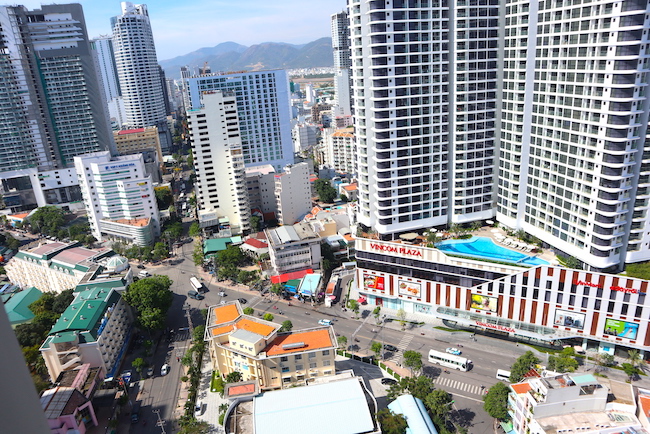
You have once talked about Quang Binh province as a possible investment destination. But recently you said that it was not right to invest in Quang Binh now. Why have you change your mind?
Michael Piro: Quang Binh has the second longest coastline in the Central region with over 300 caves and unique landscapes and experienced a slight surge in tourism when the blockbuster King Kong introduced it to the world.
Major local developers are already in Quang Binh – FLC and Sun Group with resort projects and Vingroup with a hotel & retail project.
International operators such as Pullman, Movenpick, Best Western Premier have entered the market in Quang Binh as well.
In the first 6 months of 2019, Quang Binh welcomed 2.45 million travelers including over 133,000 foreigners, up 20 per cent and 31 per cent respectively y-o-y; Quang Binh province has also invested in tourism promotion programs which have brought about good results.
The province is also becoming a spot on the map for renewable energy projects.
But because of its unique landscape, Quang Binh needs a masterplan for sustainable development of the entire region, to develop international standard hospitality real estates, robust infrastructure, renewable energy complexes while preserving its natural heritage and biodiversity.
Investors interested in Quang Binh should take precautious steps to make sure their projects are not only financially viable, but carefully planned to ensure sustainable development and maintain its natural beauty.
From your point of view, which areas in Vietnam are the best for hotel/resort development?
Michael Piro: Vietnam welcomed 12.8 million international tourists in the first nine months of 2019, up 11 per cent year-on-year and 66 million domestics tourists in the same period, up 6 per cent year-on-year, the tourism market is still growing at an impressive rate.
Of the 3-5 star hotel segment, only 10-15 per cent are branded hotels, this is a significant opportunity for branded hotel development especially in major cities Hanoi, Ho Chi Minh City and sought-out destinations such as Danang, Nha Trang and Phu Quoc.
For integrated resorts, improved mobility has opened up new coastal destinations.
With a special economic zone distinction, a new airport in operation and good infrastructure connecting it to Ha Long and Hanoi, Van Don is attracting a lot of investment and major local developers are already planning large integrated projects on the island.
Revenue from tourism in Quy Nhon increased 54.7 per cent in 2018 compared to 2017. For Tuy Hoa, revenue from tourism in Phu Yen increased 25 per cent in 2018. Both Quy Nhon and Tuy Hoa are connected to major cities by air route and are set to open for international flights.
Well-connected to Ho Chi Minh City with two airports in the planning stage, Ba Ria-Vung Tau province has plans to turn tourism into a key sector with 155 tourism investment projects including domestic and foreign investments.
Overall, Vietnam coastal hospitality has a very positive outlook as buying demand for projects are high, especially from foreign investors from Korea, Japan, Thailand, Singapore and Hong Kong.
Vietnam climbs four spots in global travel and tourism competitiveness ranking
Cutting red tape in APA approvals to speed up tax negotiations
The change in APA approval authority is expected to shorten processing time and enhance business proactiveness in international tax negotiations.
Enterprise cybersecurity is under threat from the inside
As hybrid cloud systems grow more complex, Vietnamese enterprises are struggling to detect cybersecurity threats moving laterally within their own networks.
Breakthrough for the international financial center ambition
The submission of the draft resolution on Vietnam’s international financial center to the National Assembly heralds a new developmental era for the country.
How leadership philosophy redefines hospitality in Nha Trang
More than just running a 5-star resort, Kristian Petersen is redefining the art of hospitality with a humane and sustainable leadership philosophy.
When organic becomes an inspiring wellbeing lifestyle
For Tyna Huynh, co-founder of Drinkizz, organic is not just a food choice but a way of life that fosters a deep connection between people, nature and community.
Garment factories embracing respectful workplaces
Embracing respectful workplaces could very well be the key to unlocking a more prosperous future for Vietnam's garment industry.















